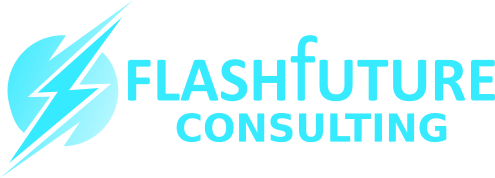Future Healthcare: 7-8 June 2017, Amsterdam
By Clive Flashman
I’ve just returned from presenting at this very interesting event, and was delighted to be asked to chair the proceedings on the second day. Speakers came from all over the world (with a preponderance from the Netherlands and the UK), from a range of commercial, governmental and academic institutions.
Interestingly, the focus at this event was far less on technology, and more on user-centred design and behavioural change. This was very refreshing as these important aspects are often missed in the clamour around Bots, AI, Big Data, AR and VR.
I’ve selected some of the highlights from the 2 days, just to give you a flavour of some of the thinking that was shared at the event.
“eHealth has been on the brink of breaking through to the mainstream for the last 10 years” said Dr Hans Ossebaard (eHealth Advisor, Dutch National Health Care Institute). When I asked him what he might have done differently 10 years ago to have brought it into more common use, he suggested the ‘bottom up’ implementation of EHRs, and the adoption of a single system (nationally).
Lotte Cornelisse (Advisor eHealth and Innovations, Vilans) and Nienke Nijhof (Project Leader Innovation and Strategy, Bartimeus) made the point that start-ups and SMEs find it very hard to bring their innovations into the traditional healthcare markets. This is true all around the world. Most healthcare markets are highly fragmented, which causes vendors to suffer very high costs of sale, while margins are constantly being squeezed. If we look at the UK, there are multiple agencies, networks and regional entities responsible for bringing innovation into the NHS. It is a bewildering mix. No wonder that many innovative small companies abandon their hopes of breaking into health care and adjust their solutions to fit other sectors.
However, according to Charles Lowe (Managing Director, Digital Health & Care Alliance) there is money to be made from an untapped market. Research that he has been involved in has shown that there is a £1 Billion market in technology for carers waiting to be exploited. Their current awareness of digital technologies is fairly low at around 29%. He also made the point (as did several others) that it is critical to know who your customer is, and design for them.
The fragmentation of the healthcare market was also highlighted by Laila Zemrani (CEO of Fitnescity). She added that the current barriers to the use of digital healthcare include the technology itself, user motivation, and the absence of clear use cases. She stressed the need for behavioural design (a common theme as I’ve mentioned) and jokingly questioned whether we might ultimately end up with Life as a Service!
I spoke about improving patient engagement, and how contextualisation is essential to doing this.
Lex Van Velsen (Senior Researcher, Roessingh Research & Development) spoke about how you design digital health tools for privacy and trust. He noted that people are more interested in the technology being used (and its performance) than the clinician involved (as long as they are competent).
One of the more provocative presentations was from Mark Willems (CEO of Minddistrict) who said that if clinicians don’t change then it is likely that the patients themselves may disrupt the healthcare sector. He queried why payers have been so slow to build the benefits of digital care into their reimbursement models – again, something that is common globally.
The UK was also represented by Dr Zafar Chaudry (CIO of Cambridge University Hospitals NHS Trust) who stated that “one of the biggest challenges in healthcare is the lack of standardisation of clinical practise”. He also suggested that clinicians “need a one to one relationship with a device” that they can use any time, anywhere.
Further innovation from the UK came from Joyce Gray (Alzheimers Scotland) who told us of the wonderful work that is being done to help people living with dementia, and those who care for them. From products to support independent living, to community-based apps – a rich set of resources is being developed to help people with this condition and those that support them.
‘Are Children the Future of Healthcare’ was the title of a stimulating and content-rich presentation by Birk Frankvoort (Product Expert, Jouw Omgeving) and Vera Naber (Consultant Psychologist). They told us about a new smartphone app that is already accurate 95% of the time in diagnosing depression based on the way that people use their mobile devices (type and frequency of use). They lamented that “everyone is reinventing the wheel, and we need to achieve scale for this (digital health) to work”.
Jan De Boer (Partner and Owner, We Do Trust) introduced us to his digital health matrix, which I have reproduced here.
In summary, this inaugural conference was rather different to the usual tech-obsessed events that have already become a little boring, and it was interesting to hear a more thoughtful and psychological perspective being discussed instead.


